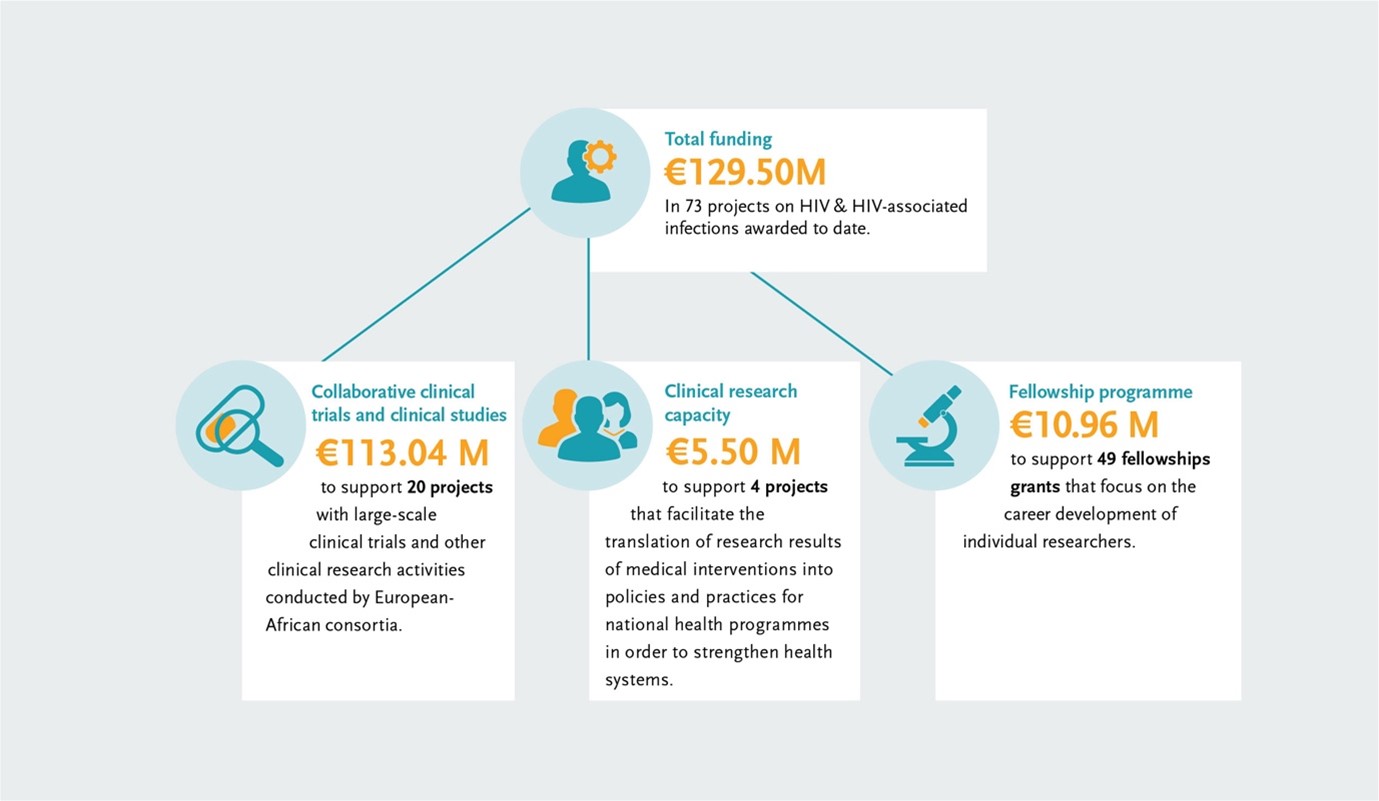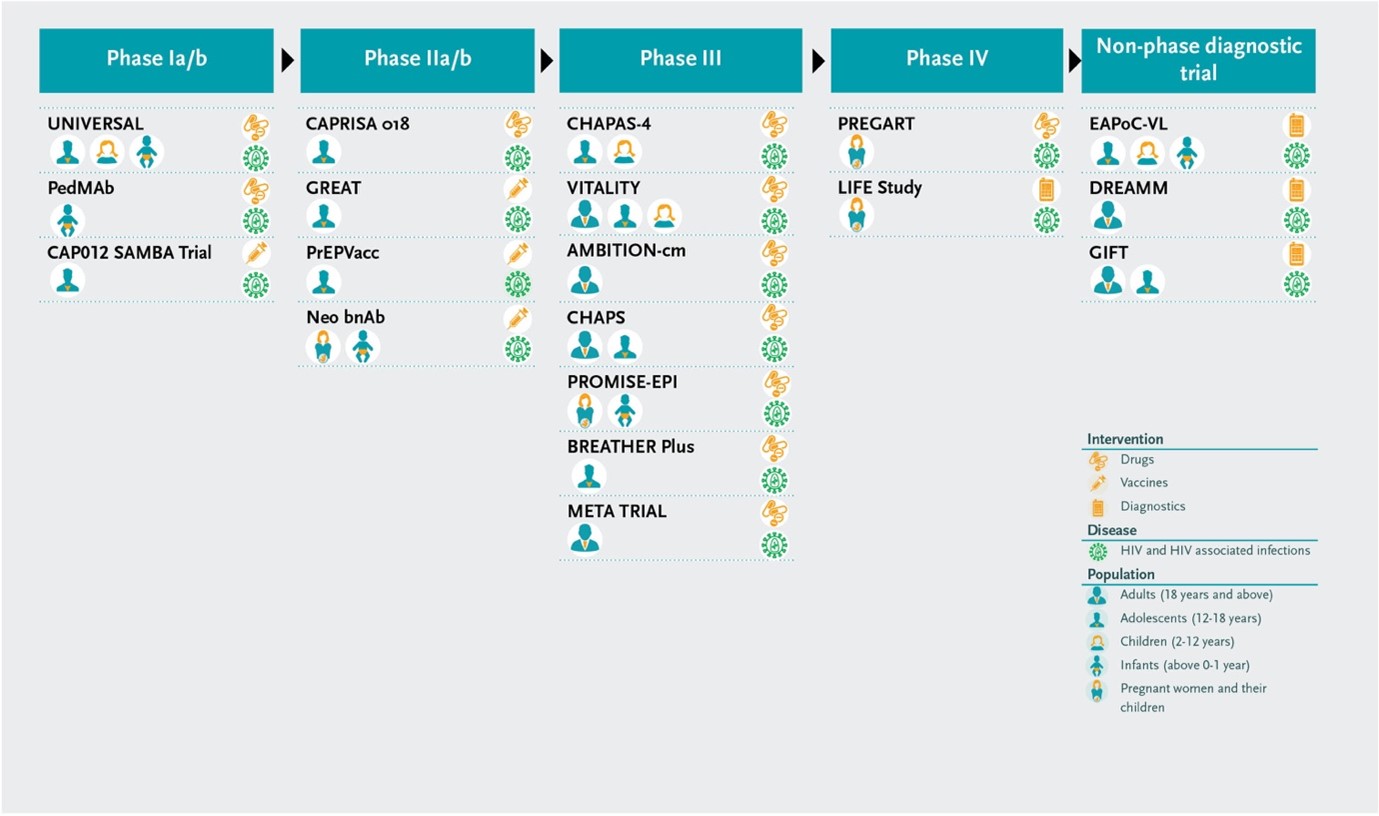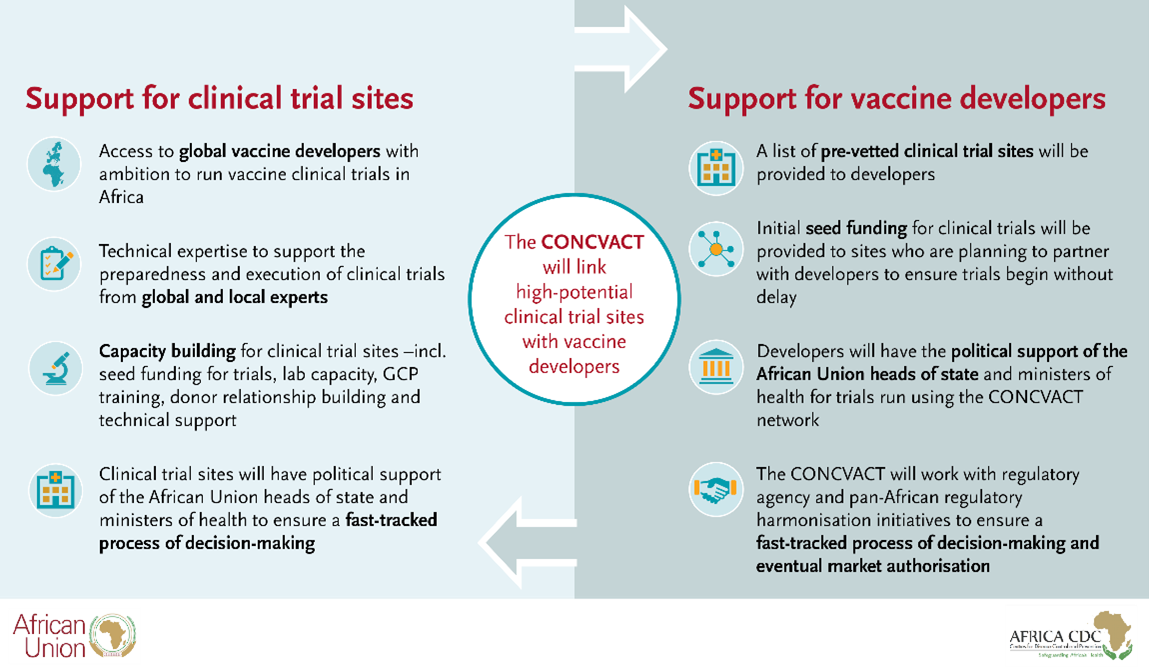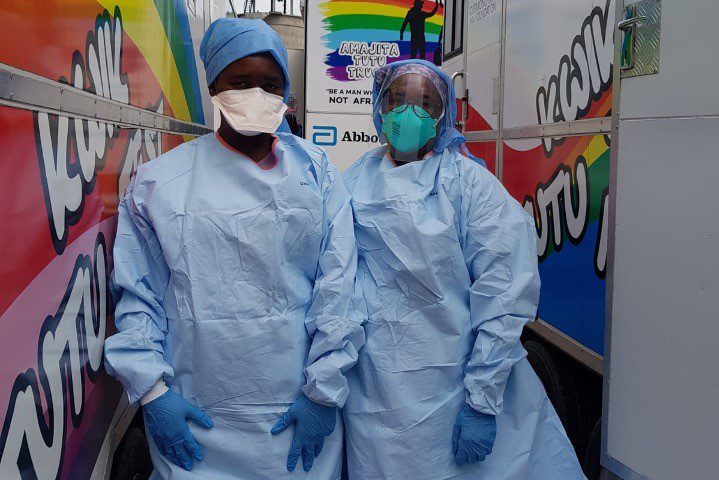World AIDS Day 2021: tackling inequalities
The COVID-19 pandemic is exposing inequalities ever more clearly. The burden of these inequalities is culminating in increasing magnitude of vulnerable populations, undermining the wellbeing of our societies. EDCTP therefore fully commits to this year’s World AIDS Day’s theme END INEQUALITIES. END AIDS. END PANDEMICS. and continues to support research that reduces the burden of disease as well as inequalities. EDCTP believes that integration of activities in different domains is key to achieve this.
EDCTP-supported research on HIV/AIDS focuses primarily on trials of innovative biomedical HIV prevention tools, strategies to reduce antiretroviral drug resistance, and research to ensure that products will reach and be used by populations with the greatest need. Understanding biological susceptibility and pathogenesis remains paramount. Comorbidities and co-infections are very common in people living with HIV, and therefore EDCTP also supports research on co-infections with human papilloma virus (HPV), malaria, and neglected infectious diseases as well as research on comorbidities such as diabetes, musculoskeletal disorders, and hypertension. Other priorities include treatment optimisation for adults, children, adolescents, and pregnant women; improved diagnostics; and strategies to address the sexual and reproductive health needs of women living with and at risk of HIV.
To date, EDCTP has invested € 129.50 M in clinical studies on new and improved medical interventions to reduce the global burden of this disease in sub-Saharan Africa. This includes research on HIV drugs, vaccines and diagnostics. However, high-quality clinical research goes hand-in-hand with talent and robust clinical infrastructures. Therefore, EDCTP has made it a priority to support talent development and clinical research capacity both within the context of HIV/AIDS research and in general.
EDCTP investments in HIV research


HIV and COVID-19
“The COVID-19 pandemic has been a wake-up call for the global health community. We have witnessed stalling of several projects and research & development portfolios in other disease areas including HIV and the expertise diverted to combating COVID-19. We have also seen that countries with strong health systems and surveillance systems developed for other diseases have responded much better to the pandemic. This could also work the other way around, and it proves once again that research is an important driver for the well-being of the populations and their economic development.”
Dr Michael Makanga, Executive Director, EDCTP
In 2020, EDCTP joined the Africa CDC Consortium for COVID-19 Vaccine Clinical Trials (CONCVACT) steering committee. CONCVACT’s objective is to provide support for, and link, both clinical trial sites and vaccine developers. Although the initial focus is on COVID-19, the mechanism is envisioned to be applicable to other infectious diseases as well, such as HIV.

EDCTP Scientific Leadership Prize for Professor Graeme Meintjes
The biennial EDCTP Prizes recognise outstanding individuals and research teams from Africa and Europe. The Scientific Leadership Prize is awarded to excellent world-class scientists in sub-Saharan Africa up to 50 years of age working on HIV/AIDS, tuberculosis, malaria and neglected infectious diseases. The prize recognizes scientists who have made significant achievements in their field and will continue to become leaders in their research field.
The 2020 EDCTP Scientific Leadership Prize was awarded to Prof. Graeme Meintjes, who has made huge contributions to the improved understanding of HIV-associated tuberculosis, tuberculosis immune reconstitution inflammatory syndrome, and HIV-associated cryptococcal meningitis.

Case study: TraCE
The TraCE project was conducted between August 2020 and September 2021 in a resource-limited, densely populated community with high rates of HIV and TB infection in Cape Town, South Africa. The project aimed to identify and follow people with confirmed COVID-19 and their household contacts, building on well-established mobile screening units which were set up to provide HIV counselling and testing services, alongside a wider range of health services. These, along with public sector clinics, were used to identify cases.
The TraCE project is providing important data on the spread of SARS-CoV-2 in a low-resource urban setting, including infection rates and the incidence of asymptomatic disease. It will also determine whether a practical intervention, tailored to the specific local context, is effective at reducing transmission of infection. The results will be highly relevant to South Africa, but also generalisable to other countries in sub-Saharan Africa with resource-poor urban and peri-urban communities.
One of the preliminary conclusions of the trial refers to the role of community health workers (CHW’s) and applying a holistic approach. In the South African as well as the global context, many routine and medical interventions for acute conditions were delayed during local lockdowns. Household visits and routine calls from CHWs helped to mitigate these delays and minimize adverse outcomes through regular contact with index patients and their households. While monitoring symptoms was an important part of supporting households, focusing on the wholistic health of patients provided opportunities to monitor overall health and provide links to care. In the future, one of the functions of CHWs may be to help households manage other conditions.
Professor Linda-Gail Bekker, coordinator of the TraCE study:
The COVID-19 pandemic manifests in different ways in different settings. We knew at the outset that it was going to be challenging to manage the pandemic in our poorest, crowded communities who suffer from high rates of HIV and TB infection. TraCE has demonstrated that mitigating transmission is very difficult in these settings, but there are other significant benefits, such as the community-based care provided in the STOPCOV intervention through lay community health workers. This enables a holistic approach to healthcare, as diseases seldom occur in isolation in these vulnerable communities.
